
Discover the Magic of Auckland: A Vibrant Harbor City
Auckland, New Zealand's largest city, is known for its stunning harbor views, diverse culture, and vibrant city life. This city, often called the 'City of Sails,' boasts a beautiful waterfront filled with yachts and boats, making it a paradise for sailing enthusiasts. One of Auckland's most iconic landmarks is the Sky Tower, offering breathtaking views of the bustling cityscape and beyond. For those interested in history and culture, the Auckland War Memorial Museum provides a deep dive into the rich Maori heritage and New Zealand's past. Nature lovers will find plenty to explore with Auckland's numerous parks and volcanic hills such as Mount Eden and One Tree Hill, offering panoramic views of the city. The nearby islands, like Waiheke Island, are perfect for a day trip, offering vineyards, stunning beaches, and a relaxing escape from the city buzz. Auckland's culinary scene is another highlight, with its array of cafes, restaurants, and food markets showcasing a mix of local and international flavors. From fresh seafood to world-class wines, there is something to satisfy every palate. With its blend of natural beauty, cultural richness, and urban sophistication, Auckland is a must-visit destination that promises an unforgettable experience.
Local tips in Auckland
- Consider buying an AT HOP card for convenient travel on buses, trains, and ferries around the city.
- Visit the Auckland Domain early in the morning for a peaceful walk and to avoid the crowds.
- Take a ferry to Waiheke Island for a day of wine tasting and relaxation on beautiful beaches.
- Check out the night markets for a taste of Auckland's diverse street food scene.
- Climb Mount Eden for the best panoramic views of the city and its surrounding areas.
Neighbourhoods in Auckland
Discover the Magic of Auckland: A Vibrant Harbor City
Auckland, New Zealand's largest city, is known for its stunning harbor views, diverse culture, and vibrant city life. This city, often called the 'City of Sails,' boasts a beautiful waterfront filled with yachts and boats, making it a paradise for sailing enthusiasts. One of Auckland's most iconic landmarks is the Sky Tower, offering breathtaking views of the bustling cityscape and beyond. For those interested in history and culture, the Auckland War Memorial Museum provides a deep dive into the rich Maori heritage and New Zealand's past. Nature lovers will find plenty to explore with Auckland's numerous parks and volcanic hills such as Mount Eden and One Tree Hill, offering panoramic views of the city. The nearby islands, like Waiheke Island, are perfect for a day trip, offering vineyards, stunning beaches, and a relaxing escape from the city buzz. Auckland's culinary scene is another highlight, with its array of cafes, restaurants, and food markets showcasing a mix of local and international flavors. From fresh seafood to world-class wines, there is something to satisfy every palate. With its blend of natural beauty, cultural richness, and urban sophistication, Auckland is a must-visit destination that promises an unforgettable experience.
When is the best time to go to Auckland?
Iconic landmarks you can’t miss
Sky Tower
Experience breathtaking views and thrilling adventures at Auckland's iconic Sky Tower, the tallest structure in New Zealand.
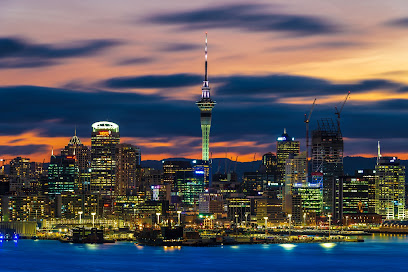
Auckland War Memorial Museum
Explore the rich history and culture of New Zealand at the Auckland War Memorial Museum, a must-visit landmark in Auckland.
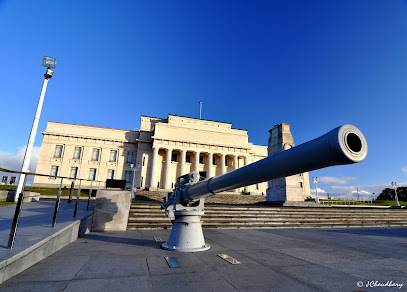
Auckland Domain
Discover the tranquility of Auckland Domain, a lush urban park filled with history, gardens, and stunning views in the heart of Auckland.
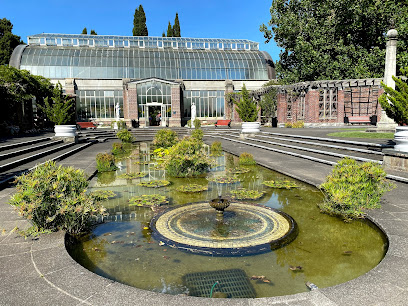
Cornwall Park
Discover the lush landscapes and rich history of Cornwall Park, a serene retreat in Auckland that offers breathtaking views and a connection to nature.
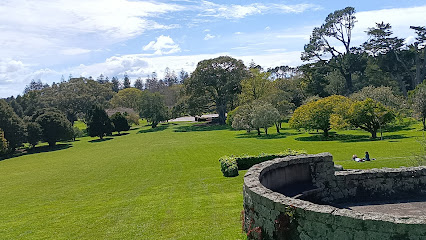
Aotea Square
Explore Aotea Square, Auckland's vibrant cultural plaza filled with events, art, and culinary delights in the heart of New Zealand's largest city.
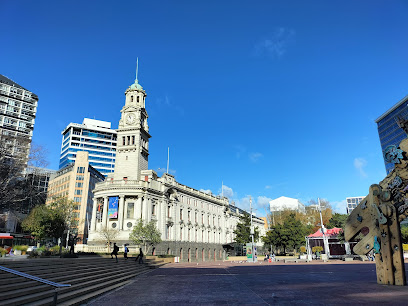
Auckland Art Gallery
Discover the Auckland Art Gallery, a cultural hub showcasing New Zealand's artistic brilliance and contemporary masterpieces in a stunning architectural setting.

Albert Park
Experience the serene beauty of Albert Park, a lush urban oasis in the heart of Auckland, perfect for relaxation, culture, and scenic strolls.
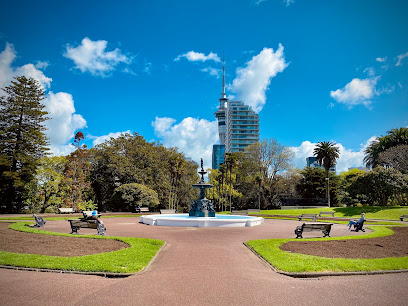
Victoria Park
Discover the beauty of Victoria Park, an urban gem in Auckland with lush landscapes, recreational activities, and a vibrant atmosphere for families and tourists alike.
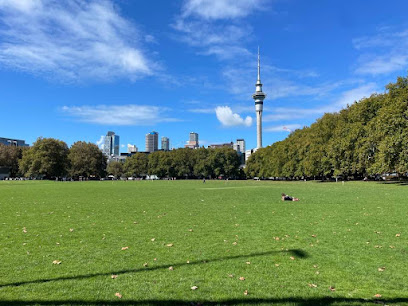
The Civic
Discover the allure of The Civic, Auckland's premier performing arts theater, blending history, stunning architecture, and vibrant cultural experiences.
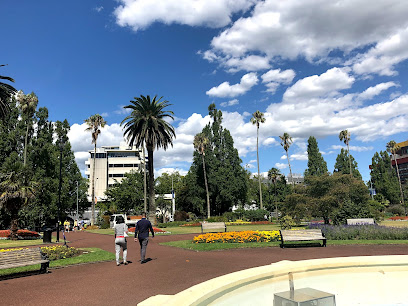
Silo Park
Experience the vibrant energy of Silo Park in Auckland, a perfect blend of urban culture and natural beauty in the heart of the city.
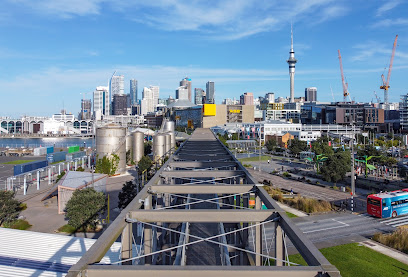
Michael Joseph Savage Memorial Park
Explore the serene beauty and historical significance of Michael Joseph Savage Memorial Park, a tranquil escape in Auckland with breathtaking views.
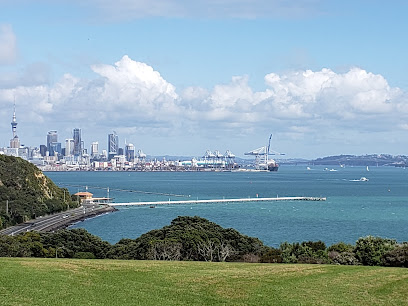
Maungauika / North Head Historic Reserve
Explore the historical and natural beauty of Maungauika / North Head, a top tourist destination in Auckland with stunning coastal views and rich heritage.
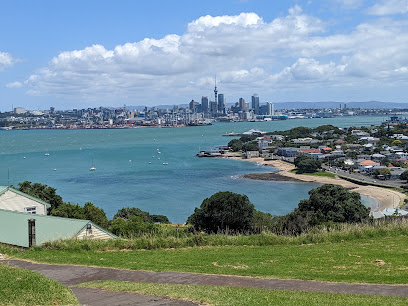
Weta Workshop Unleashed
Discover the artistry behind world-renowned films at Weta Workshop Unleashed in Auckland, New Zealand, where creativity and innovation come to life.
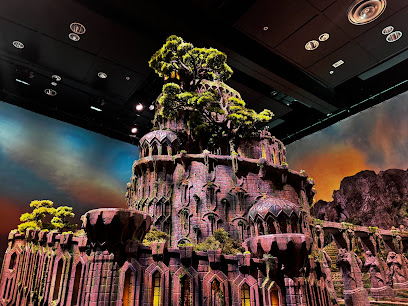
Manukau Heads Lighthouse
Explore the historic Manukau Heads Lighthouse, a scenic spot offering breathtaking views of the Tasman Sea and rich maritime history in New Zealand.
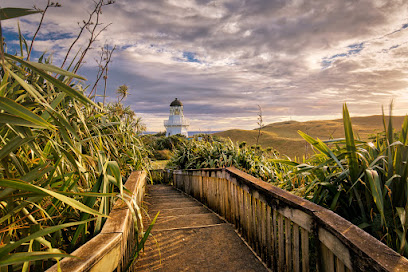
AJ Hackett Auckland SkyJump & SkyWalk
Dive into adventure with AJ Hackett Auckland SkyJump & SkyWalk, where breathtaking views and exhilarating thrills await you in the heart of Auckland.
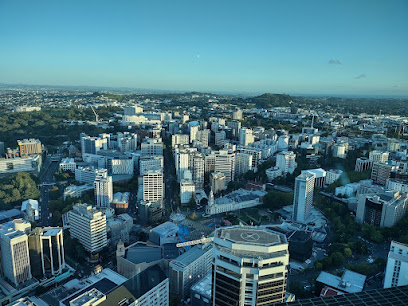
Unmissable attractions to see
Sky Tower
Experience breathtaking views and thrilling adventures at Auckland's Sky Tower, the tallest structure in New Zealand, and a must-see landmark.
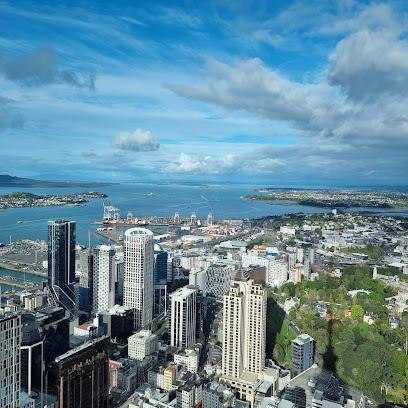
Auckland Zoo
Explore Auckland Zoo, a premier wildlife sanctuary in New Zealand, dedicated to conservation and offering immersive animal encounters.
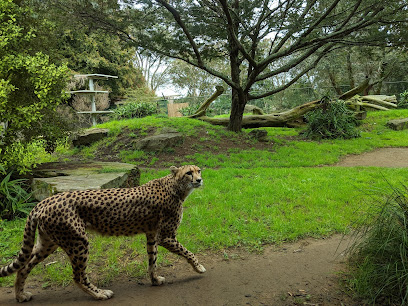
Auckland War Memorial Museum
Explore the Auckland War Memorial Museum: a gateway to New Zealand's rich history and cultural legacy, featuring military artifacts and Māori treasures.
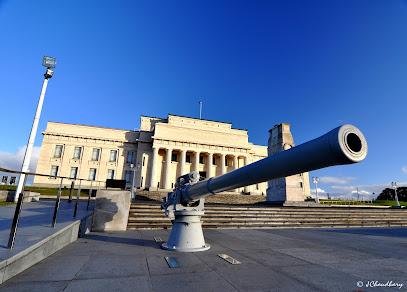
Auckland Domain
Discover the natural beauty and historical significance of Auckland Domain, the city's oldest park, perfect for relaxation, exploration, and cultural experiences.
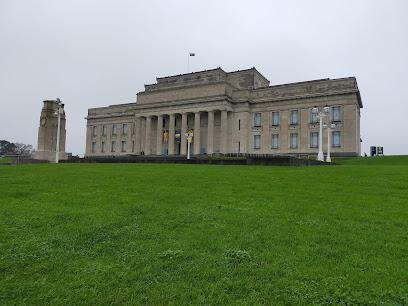
Auckland Botanic Gardens
Explore the stunning Auckland Botanic Gardens, a vibrant oasis showcasing diverse plant life and beautifully crafted landscapes in the heart of New Zealand.
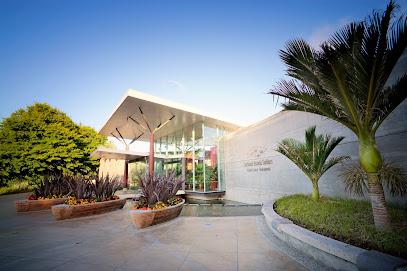
Maungawhau / Mount Eden
Explore Maungawhau, Auckland's majestic volcanic cone, where stunning views and rich cultural history await every visitor.
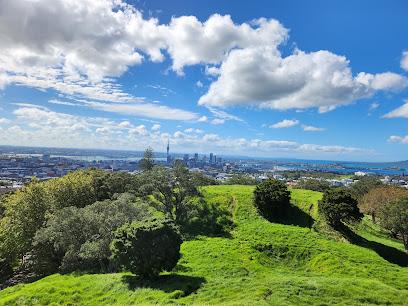
SEA LIFE Kelly Tarlton's Aquarium
Explore the enchanting underwater world at SEA LIFE Kelly Tarlton's Aquarium in Auckland, where adventure and education merge for a memorable family experience.
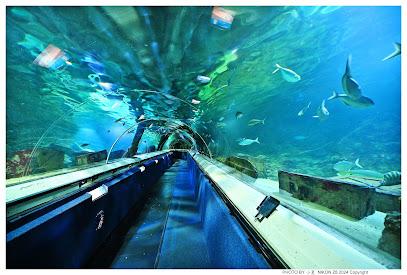
Auckland Art Gallery
Explore the architectural beauty and diverse art collections at Auckland Art Gallery, a premier destination for art lovers in New Zealand.

Albert Park
Experience the serene beauty and vibrant culture of Albert Park in Auckland, a perfect retreat for relaxation and exploration.
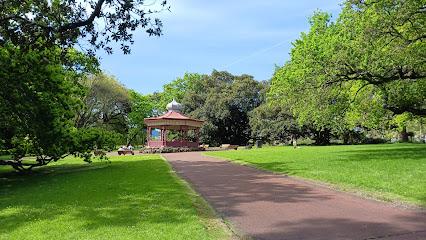
Shakespear Regional Park
Experience the stunning landscapes and rich biodiversity of Shakespear Regional Park, a must-visit ecological treasure in Auckland, New Zealand.
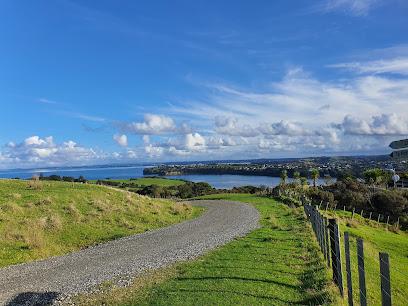
Victoria Park
Discover Victoria Park, Auckland's green oasis, offering lush landscapes, recreational activities, and local events in the heart of the city.
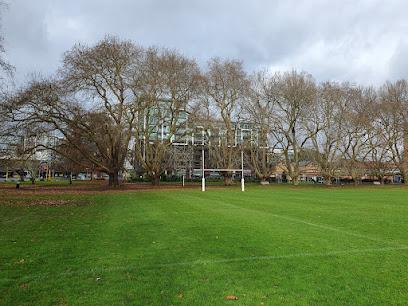
MOTAT Museum of Transport and Technology
Discover the fascinating world of transport and technology at Auckland's MOTAT Museum, where history meets innovation in an engaging experience for all ages.
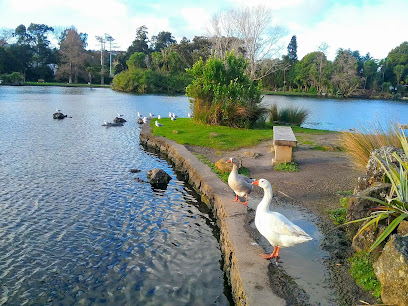
Butterfly Creek
Explore Butterfly Creek, a vibrant sanctuary near Auckland Airport showcasing butterflies, exotic animals, and a delightful café for a perfect family outing.
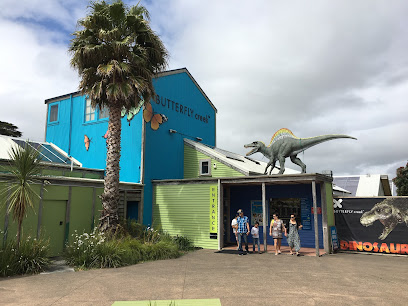
Domain Wintergardens
Discover the lush landscapes and vibrant flora of Domain Wintergardens, Auckland's botanical gem offering tranquility and beauty year-round.
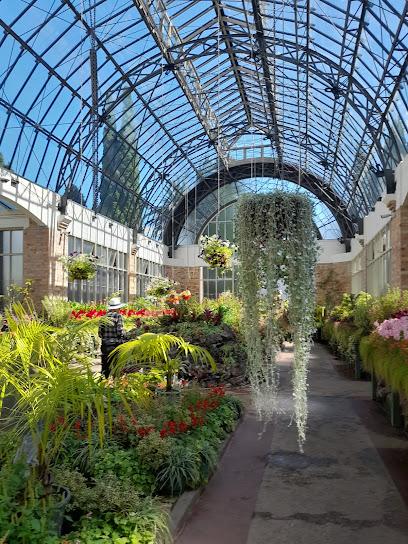
The Civic
Experience the vibrant performances and stunning Art Deco architecture of The Civic, Auckland's iconic performing arts theater.
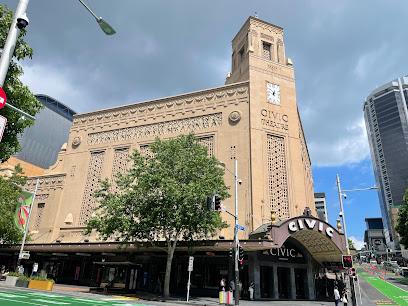
Essential places to dine
Amano
Experience exquisite dining at Amano - Auckland's premier restaurant and bakery offering fresh local flavors in an inviting atmosphere.
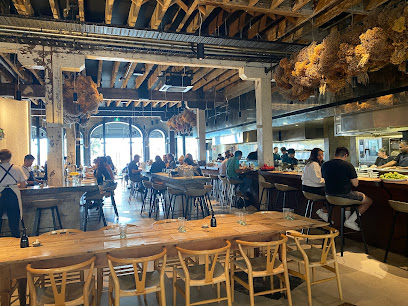
Tony's Original Steak & Seafood Restaurant
Experience authentic New Zealand flavors at Tony's Original Steak & Seafood Restaurant in Auckland – where tradition meets taste.
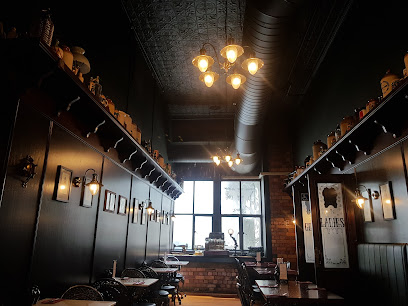
Swashbucklers Restaurant & Bar
Experience fresh seafood delights at Swashbucklers Restaurant & Bar in Auckland's scenic waterfront.
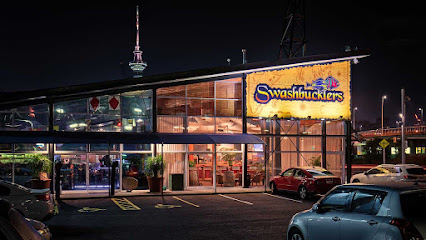
Baduzzi
Experience authentic Italian flavors at Baduzzi, where every dish tells a story of tradition and passion amidst Auckland's vibrant waterfront.
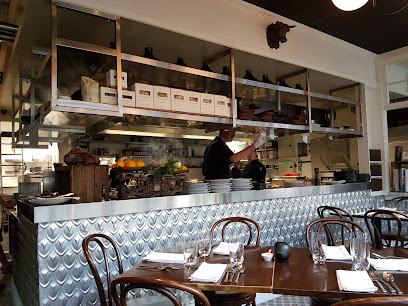
Soul Bar & Bistro
Experience culinary excellence at Soul Bar & Bistro in Auckland – where stunning waterfront views meet exquisite flavors.
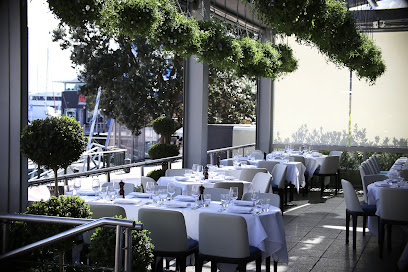
Depot
Discover Depot: A culinary gem in Auckland offering fresh local flavors in an inviting atmosphere perfect for all food lovers.
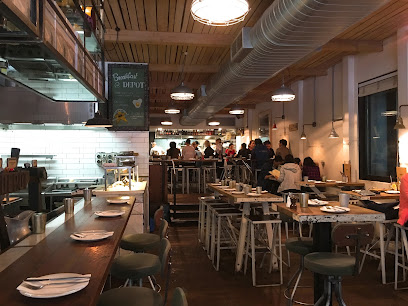
Prego Restaurant
Experience authentic Italian flavors at Prego Restaurant in Ponsonby, Auckland – where every dish tells a story of tradition and passion.
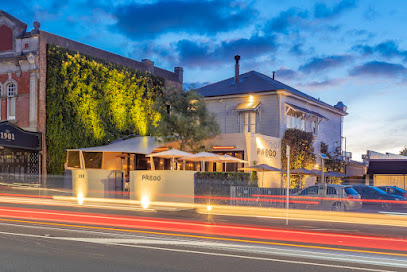
Odettes Eatery
Experience Mediterranean flavors at Odettes Eatery in Auckland's CBD – where every dish tells a story.
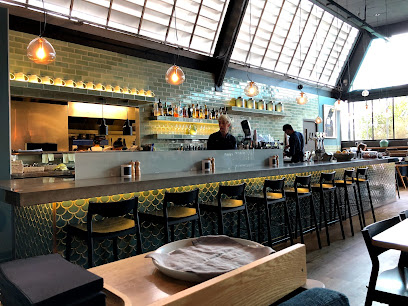
Wildfire Restaurant Auckland
Indulge in an authentic Brazilian barbecue experience at Wildfire Restaurant Auckland with succulent meats and vibrant atmosphere.
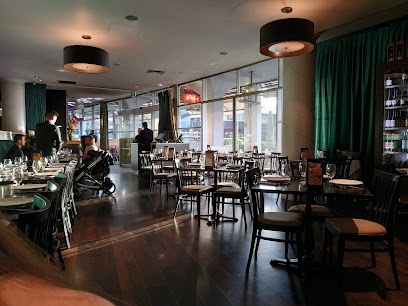
Mezze Bar
Experience authentic Mediterranean cuisine at Mezze Bar in Auckland's CBD—where every dish tells a flavorful story.
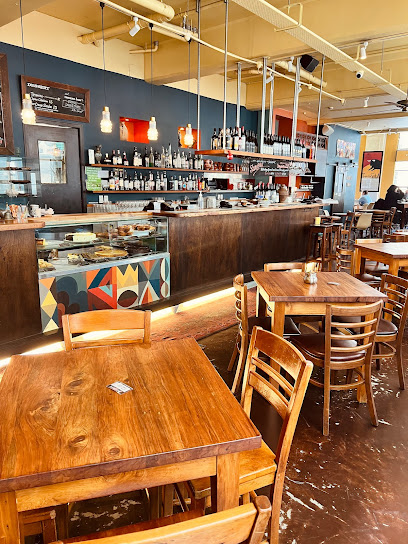
One Tree Grill
Experience the essence of New Zealand cuisine at One Tree Grill in Epsom – where exceptional flavors meet elegant dining.
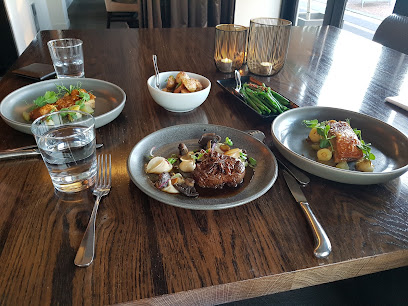
The Conservatory
Discover The Conservatory in Auckland - where local flavors meet modern dining in a vibrant atmosphere.
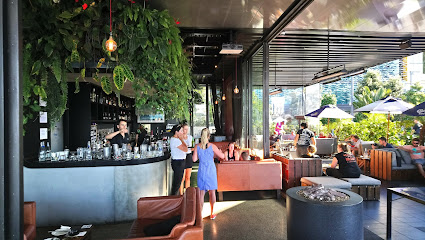
Cafe Hanoi
Experience authentic Vietnamese flavors at Cafe Hanoi in Auckland's Britomart - a culinary gem offering delicious dishes in a vibrant setting.
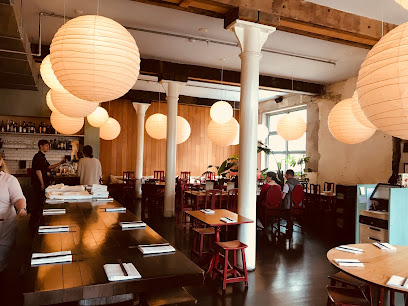
Orbit 360° Dining
Indulge in fine dining at Orbit 360° Dining atop Auckland's Sky Tower while enjoying stunning panoramic views.
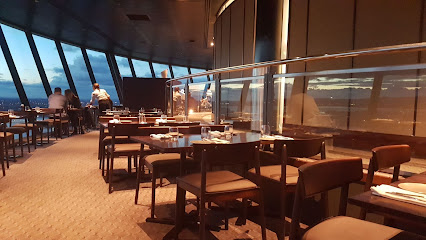
Ortolana
Experience authentic Italian flavors at Ortolana in Auckland CBD - where fresh local ingredients meet culinary tradition.
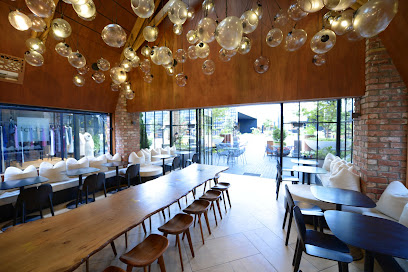
Markets, malls and hidden boutiques
Westfield Newmarket
Explore Westfield Newmarket, Auckland's premier shopping mall with diverse retail, dining, and entertainment options in a vibrant setting.
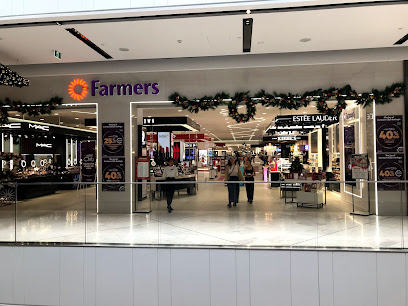
Commercial Bay
Explore Commercial Bay: Auckland's ultimate shopping and dining destination with stunning waterfront views and diverse experiences.
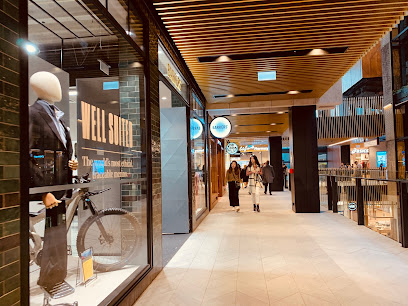
Smith & Caughey's Queen Street
Explore Smith & Caughey's Queen Street, Auckland's premier department store, offering a blend of luxury, local design, and an exceptional shopping experience.
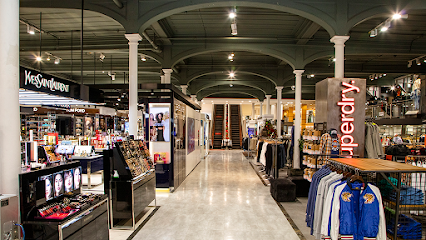
Real Groovy
Explore Real Groovy in Auckland for an unforgettable blend of vinyl records, books, and unique collectibles that capture the essence of New Zealand's culture.
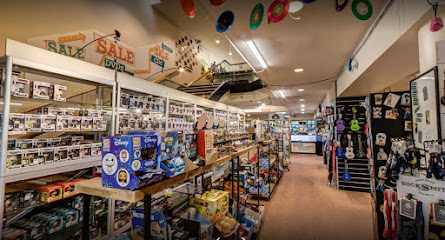
Martha's Backyard
Explore Martha's Backyard, Auckland's premier American grocery store, offering a diverse selection of imported goods for every taste.
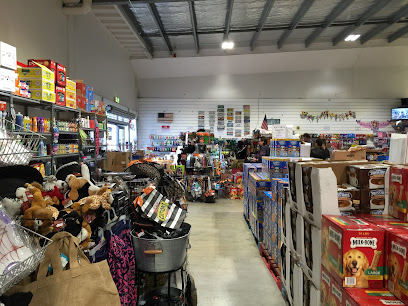
Sky World Indoor Entertainment
Discover excitement and leisure at Sky World Indoor Entertainment, Auckland's ultimate destination for shopping, dining, and fun-filled experiences.
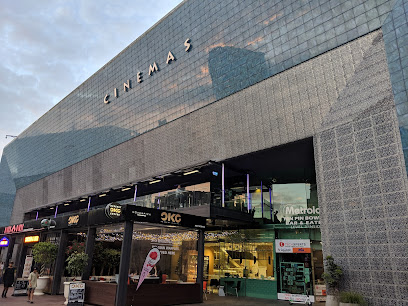
The Warehouse Auckland Central
Explore a diverse range of products at The Warehouse Auckland Central, your ultimate shopping destination in the heart of Auckland CBD.
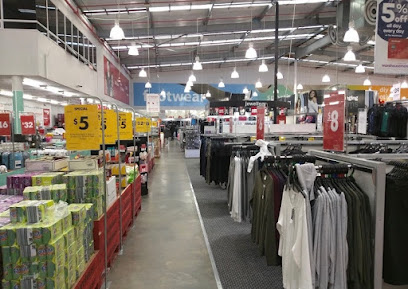
Queens Arcade
Discover a unique shopping experience at Queens Arcade, where local charm meets eclectic boutiques in the heart of Auckland.
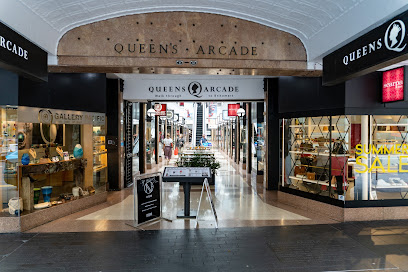
Vagabond Games & Collectables
Explore Auckland's vibrant gaming culture at Vagabond Games & Collectables, your one-stop shop for trading cards, board games, and unique collectibles.
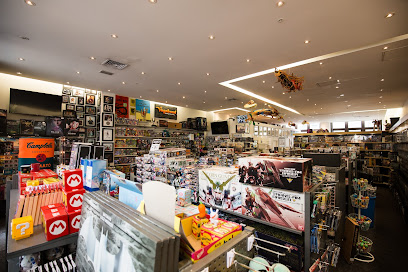
Graphic Novel Cafe, Anime/Manga Specialty Store
Explore a world of creativity at the Graphic Novel Cafe, Auckland's premier destination for manga, comics, and cozy vibes.
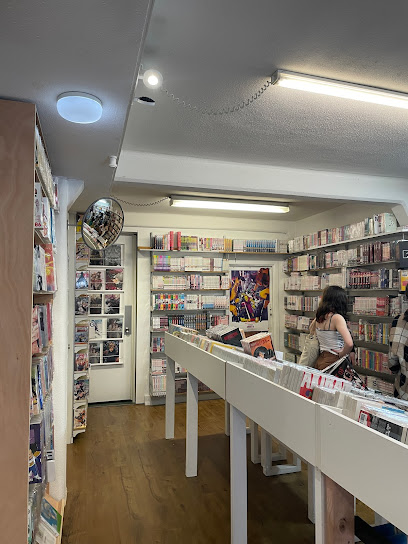
Recycle Boutique
Explore Recycle Boutique in Auckland for unique second-hand clothing and support sustainable fashion while creating your own style.
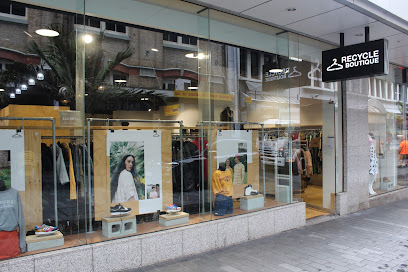
The Fantail House
Explore The Fantail House in Parnell, Auckland for unique gifts, artistic handicrafts, and a taste of New Zealand's vibrant culture.
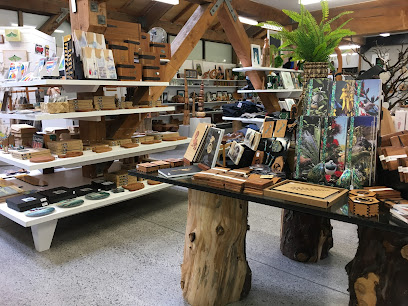
Dangerfield - Auckland
Explore Dangerfield in Auckland for a unique shopping experience featuring alternative fashion and inclusive style.
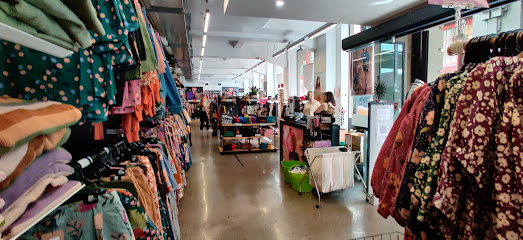
MIXT NZ art + design
Explore the creativity of New Zealand at MIXT NZ Art + Design, a unique gift shop in Kingsland offering locally crafted art and handmade treasures.
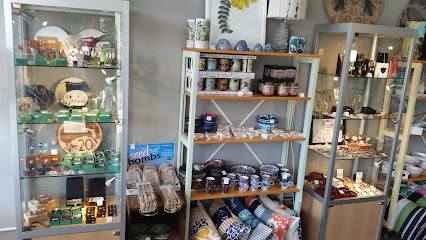
The Third Eye
Explore the vibrant and eclectic offerings at The Third Eye, a unique shop in Auckland CBD showcasing local artistry and culture.
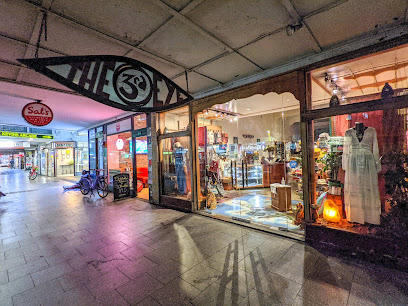
Essential bars & hidden hideouts
Dr Rudi's Rooftop Brewing Co.
Experience stunning views and exceptional craft beer at Dr Rudi's Rooftop Brewing Co. in the heart of Auckland's CBD.
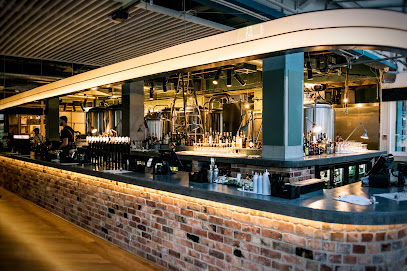
Caretaker
Discover Caretaker, Auckland's chic cocktail bar in Britomart, where innovative drinks meet a vibrant nightlife experience.
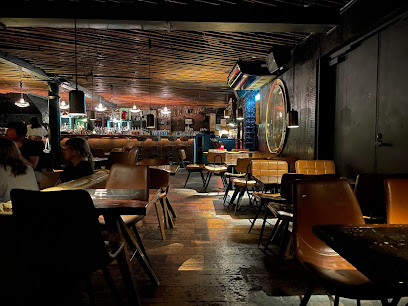
The Fox, A London Pub
Experience the lively spirit of a traditional London pub in the heart of Auckland with great food, drinks, and entertainment at The Fox.
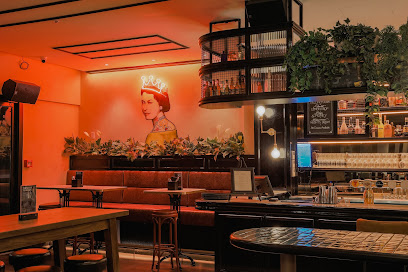
Ding Dong Lounge
Discover the vibrant nightlife at Ding Dong Lounge, Auckland's premier bar for live music, dancing, and unforgettable evenings.
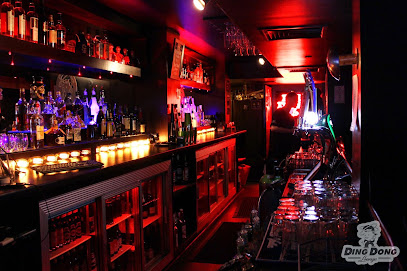
Hoppers Garden Bar
Discover the vibrant atmosphere of Hoppers Garden Bar, Auckland's lush oasis for craft drinks and delightful gatherings.
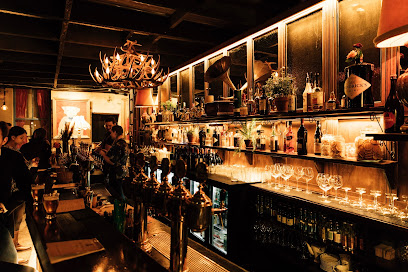
My Bar
Experience Auckland's vibrant nightlife at My Bar, the ultimate cocktail destination in the heart of the CBD with innovative drinks and a lively atmosphere.
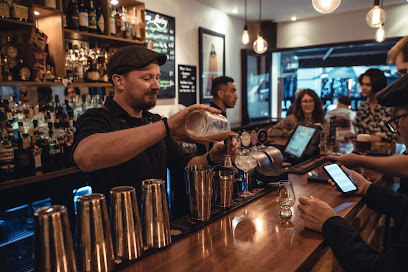
Reign & Pour
Experience the vibrant atmosphere and delightful cuisine at Reign & Pour, a must-visit bar and restaurant in the heart of Auckland's CBD.
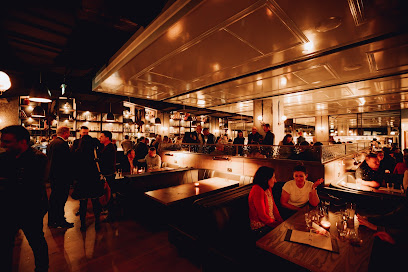
Mo's
Experience the vibrant cocktail culture at Mo's in Auckland, where creativity and quality blend seamlessly in every drink.
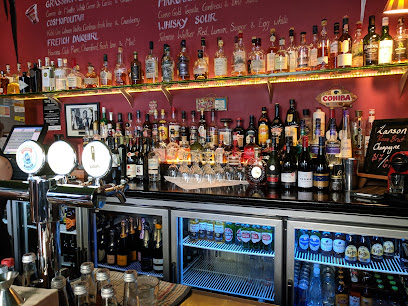
The Churchill Auckland
Experience the vibrant nightlife at The Churchill Auckland, where creative cocktails and a lively atmosphere await in the heart of the city.
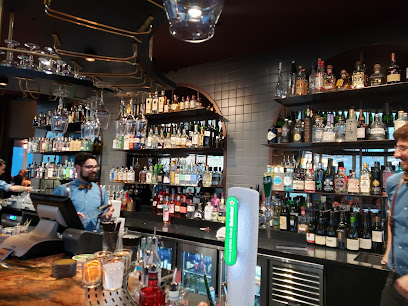
HI-SO Rooftop Bar
Discover the chic sophistication of HI-SO Rooftop Bar in Auckland, where stunning views and signature cocktails create an unforgettable nightlife experience.
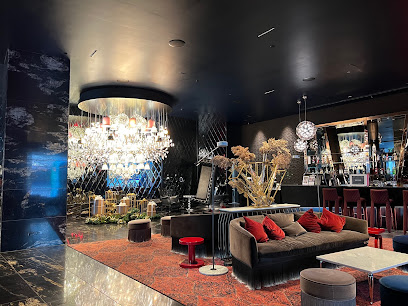
Red Bar
Experience the vibrant nightlife at Red Bar, Auckland's top cocktail bar featuring live music, comedy, and an exciting atmosphere.
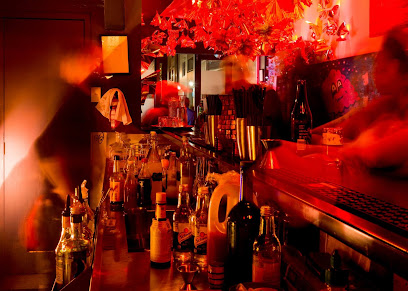
Cornerbar
Experience the vibrant nightlife at Cornerbar, Auckland's premier cocktail and wine bar, where every sip is a celebration.
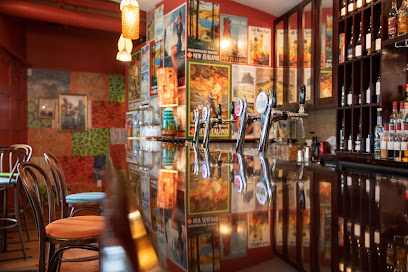
Panacea
Discover Panacea, Auckland's premier cocktail bar, offering innovative drinks and a vibrant atmosphere for an unforgettable night out.
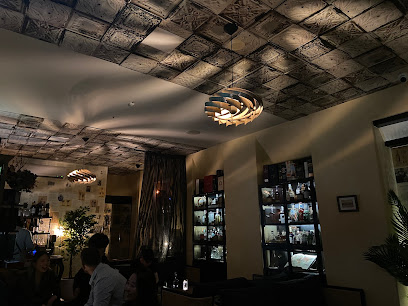
Bar Albert
Discover Bar Albert, Auckland's premier cocktail bar, offering innovative drinks and a vibrant atmosphere in the heart of the city.
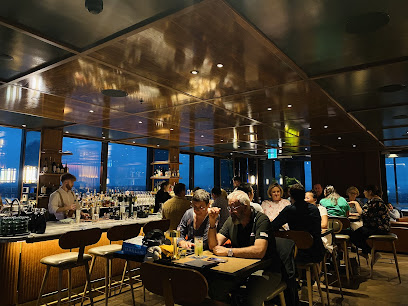
Local Phrases
-
- HelloKia ora
[Key-or-ah] - GoodbyeHaere rā
[High-ree-rah] - YesĀe
[Eye] - NoKāo
[Kah-oh] - Please/You're welcomeTēnā koe
[Tay-nah koi] - Thank youNgā mihi
[Nah me-he] - Excuse me/SorryWhakamārama mai
[Fah-kah-mah-rah-mah my] - How are you?Kei te pēhea koe?
[Kay tay pay-hay-ah koi] - Fine. And you?Ka pai. Ā, kei te pēhea koe?
[Kah pie. Eye, kay tay pay-hay-ah koi] - Do you speak English?Kōrero koe i te reo Pākehā?
[Ko-reh-ro koi ee tay ray-oh pah-keh-ha] - I don't understandKaore au e mārama
[Kah-or-reh oh eh mah-rah-mah]
- HelloKia ora
-
- I'd like to see the menu, pleaseMe tiro i te whārangi kai, tēnā
[Meh tee-raw ee tay fah-rung-ee kai, tay-nah] - I don't eat meatKaore au e kai heihei
[Kah-or-reh oh eh kai hey-hey] - Cheers!Kia ora!
[Key-or-ah] - I would like to pay, pleaseMe hiahia ahau ki te utu, tēnā
[Meh hee-ah-hee-ah ah-how kee tay oo-too, tay-nah]
- I'd like to see the menu, pleaseMe tiro i te whārangi kai, tēnā
-
- Help!Āwhina!
[Eye-fee-nah] - Go away!Haere atu!
[High-ree ah-too] - Call the Police!Karanga ki te Pirihimana!
[Kah-rah-ngah kee tay pee-ree-hee-mah-nah] - Call a doctor!Karanga ki te rata!
[Kah-rah-ngah kee tay rah-tah] - I'm lostI wareware ahau
[Ee wah-reh-wah-reh ah-how] - I'm illKei ahau e mate
[Kay ah-how eh mah-teh]
- Help!Āwhina!
-
- I'd like to buy...Me hiahia ahau ki te hoko...
[Meh hee-ah-hee-ah ah-how kee tay hoh-koh] - I'm just lookingKei te titiro ahau
[Kay tay tee-tee-roh ah-how] - How much is it?He aha te utu?
[Hey ah-ha tay oo-too] - That's too expensiveHe rawa te nui
[Hey rah-wah tay noo-ee] - Can you lower the price?Āe koe e whakaiti i te utu?
[Eye koi eh fah-kai-tee ee tay oo-too]
- I'd like to buy...Me hiahia ahau ki te hoko...
-
- What time is it?He aha te wā?
[Hey ah-ha tay wah] - It's one o'clockKotahi karaka
[Koh-tah-hee kah-rah-kah] - Half past (10)Tekau mā rua
[Tay-kow mah roo-ah] - MorningAta mārie
[Ah-tah mah-ree-eh] - AfternoonAhiahi mārie
[Ah-hee-ah-hee mah-ree-eh] - EveningPō mārie
[Poh mah-ree-eh] - YesterdayInāianei
[Ee-nah-ee-ah-neh-ee] - TodayTēnei rā
[Tay-nay rah] - TomorrowĀpōpō
[Eye-poh-poh] - 1Tahi
[Tah-hee] - 2Rua
[Roo-ah] - 3Toru
[Toh-roo] - 4Whā
[Fah] - 5Rima
[Ree-mah] - 6Ono
[Oh-no] - 7Whitu
[Fee-too] - 8Waru
[Wah-roo] - 9Iwa
[Ee-wah] - 10Tekau
[Tay-kow]
- What time is it?He aha te wā?
-
- Where's a/the...?Kei hea te...
[Kay hey-ah teh] - What's the address?He aha te wāhitau?
[Hey ah-ha tay wah-hee-tow] - Can you show me (on the map)?Āe koe e tēnei au (i runga i te mahere)?
[Eye koi eh tay-nay ee oh (ee roon-gah ee teh mah-heh-reh)] - When's the next (bus)?Āhea te taha atu?
[Eye-heh-ah teh tah-hah ah-too] - A ticket (to ....)He tiki (ki ...)
[Hey tee-kee (key ...)]
- Where's a/the...?Kei hea te...
History of Auckland
-
Long before European settlers arrived, the Tāmaki Makaurau region, now known as Auckland, was inhabited by the Māori people. The area was prized for its fertile land, abundant seafood, and strategic position for trade and warfare. Various iwi (tribes), including Ngāti Whātua, Tainui, and Ngāti Pāoa, settled in the region, establishing pā (fortified villages) on volcanic cones like Maungakiekie (One Tree Hill) and Maungawhau (Mount Eden). The Māori name Tāmaki Makaurau translates to 'Tāmaki desired by many,' reflecting its desirability and importance.
-
European settlers began arriving in the early 19th century, with missionaries, traders, and whalers making initial contact. In 1840, the Treaty of Waitangi was signed between the British Crown and various Māori chiefs, paving the way for more structured European settlement. Captain William Hobson, New Zealand's first Governor, chose Auckland as the capital in 1841, naming it after George Eden, Earl of Auckland. The city quickly grew as settlers arrived, drawn by the promise of land and opportunities.
-
From 1841 to 1865, Auckland served as the capital of New Zealand. During this period, it became the administrative, commercial, and military center of the burgeoning colony. The city's position as the capital facilitated the construction of key infrastructure, including Government House and the first Auckland Harbour Bridge. However, by 1865, the capital was moved to Wellington due to its more central location within the country, although Auckland remained a vital economic hub.
-
The mid-19th century was a tumultuous time in Auckland's history, marked by the New Zealand Wars between the British Crown and various Māori groups. The conflicts, primarily over land and sovereignty, had significant impacts on the Auckland region. The city became a military base, and several battles occurred nearby. The wars led to significant land confiscations from Māori, altering the social and economic landscape of Auckland and leaving a lasting legacy on Māori-Crown relations.
-
In the late 19th and early 20th centuries, Auckland experienced significant economic growth and waves of immigration. The discovery of gold in nearby regions like Coromandel and Waihi boosted the economy, leading to increased investment in infrastructure and industry. Immigrants from Europe, Asia, and the Pacific Islands arrived, contributing to Auckland's cultural diversity. This period saw the establishment of key institutions, such as the University of Auckland in 1883 and Auckland Museum in 1852.
-
World War II had a profound impact on Auckland, with the city serving as a crucial military base for Allied forces in the Pacific. The post-war period saw rapid urban development and suburban expansion. Infrastructure projects like the Auckland Harbour Bridge, completed in 1959, and the construction of motorways facilitated the city's growth. The post-war baby boom and increased immigration further fueled Auckland's expansion, transforming it into New Zealand's largest city.
-
In recent decades, Auckland has continued to grow and evolve, emerging as a vibrant, cosmopolitan city. It is New Zealand's primary economic and cultural hub, known for its diverse population, with significant communities of Māori, Pacific Islanders, Asians, and Europeans. The city's skyline is dominated by landmarks like the Sky Tower and the Auckland Harbour Bridge. Auckland hosts numerous cultural and sporting events, including the America's Cup and the Auckland Arts Festival, reflecting its dynamic and multicultural character.
Auckland Essentials
-
Auckland is served by Auckland Airport (AKL), located about 20 kilometers south of the city center. The airport handles both international and domestic flights. From the airport, you can reach the city center by shuttle buses, taxis, rideshares, or rental cars. The SkyBus operates 24/7 and provides a convenient connection between the airport and downtown Auckland.
-
Auckland offers various transportation options including buses, trains, ferries, and taxis. The AT (Auckland Transport) HOP card is a convenient way to pay for public transport. Buses cover most areas, while the train network connects the city to outer suburbs. Ferries operate to nearby islands like Waiheke and Rangitoto. Taxis and rideshare services like Uber are also widely available.
-
The official currency in New Zealand is the New Zealand Dollar (NZD). Credit and debit cards are widely accepted, and contactless payment methods are very common. ATMs are readily available throughout the city. It is advisable to carry some cash for small purchases or for use in more remote areas.
-
Auckland is generally safe for tourists, but it's advisable to take standard precautions. Areas such as Queen Street and the central business district are generally safe, but be cautious in more isolated areas like Karangahape Road at night. Keep an eye on your belongings and avoid poorly lit areas after dark.
-
In case of an emergency, dial 111 for police, fire, or medical assistance. Auckland has several hospitals and urgent care centers. It's recommended to have travel insurance that covers medical emergencies. Pharmacies are widely available for minor health issues.
-
Fashion: Do dress in layers as weather can be unpredictable. Casual attire is generally acceptable. Religion: Do respect all religious customs and places of worship. Public Transport: Do use your AT HOP card for convenience. Don’t eat or drink on public transport. Greetings: Do greet people with a friendly 'Kia ora' or 'Hello'. Eating & Drinking: Do try local foods like fish and chips, and don’t miss out on the wine from nearby vineyards. Don’t tip excessively as it’s not a common practice in New Zealand.
-
To experience Auckland like a local, visit local markets like the Auckland Night Markets and La Cigale French Market. Take a stroll through neighborhoods such as Ponsonby and Parnell to enjoy boutique shopping and local eateries. Explore the lesser-known beaches along the west coast for stunning landscapes and fewer crowds.
Trending Landmark in Auckland
-
Sky Tower
-
Auckland War Memorial Museum
-
Auckland Domain
-
Cornwall Park
-
Aotea Square
-
Auckland Art Gallery
-
Albert Park
-
Victoria Park
-
The Civic
-
Silo Park
-
Michael Joseph Savage Memorial Park
-
Maungauika / North Head Historic Reserve
-
Weta Workshop Unleashed
-
Manukau Heads Lighthouse
-
AJ Hackett Auckland SkyJump & SkyWalk
Nearby Cities to Auckland
-
Things To Do in Hamilton
-
Things To Do in Whangarei
-
Things To Do in Tauranga
-
Things To Do in Paihia
-
Things To Do in Rotorua
-
Things To Do in Taupo
-
Things To Do in New Plymouth
-
Things To Do in Whanganui
-
Things To Do in Napier
-
Things To Do in Gisborne
-
Things To Do in Palmerston North
-
Things To Do in Masterton
-
Things To Do in Wellington
-
Things To Do in Nelson
-
Things To Do in Blenheim



















